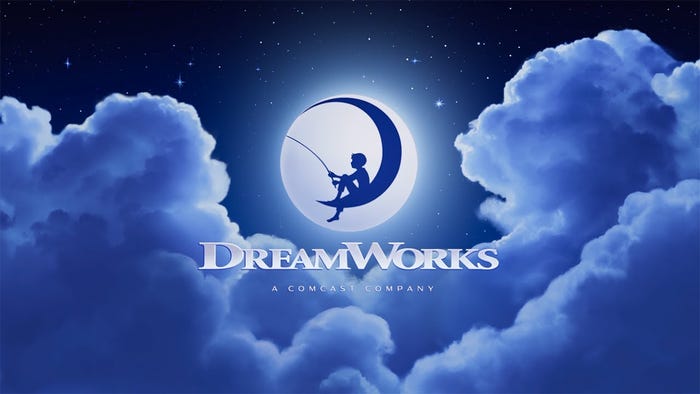E3 Report: Smart Marketing - How an Intelligent Approach to Research Can Boost Your Bottom Line
Creative Domain Executive VP of Marketing Craig Relyea's panel of videogame marketing experts explores the misconceptions about "strategic information gathering" stressing that current videogame marketing "relies too much on gut instinct," a tendency that has "slowed the industry's progress in becoming a dominant medium."

The idea behind Creative Domain Executive VP of Marketing Craig Relyea's panel at this year's E3 was to explore and maybe debunk what he described as misconceptions about "strategic information gathering"; marketing speak for focus groups, surveys, and other consumer data-raking. His thesis was that current videogame marketing "relies too much on gut instinct," a tendency that, from his perspective, has "slowed the industry's progress in becoming a dominant medium." He fears that "we're becoming smothered by over-dependancy on analysis", resulting in a trap where, unless it is an extension of an established brand, nothing new gets made.
His panel consisted of Ubisoft VP of Sales Yasmin Naboa, EA VP of Marketing Communications Carolyn Feinstein - and Sean Denny, Director of Consumer Insights for LucasArts; for approximately an hour, Relyea posed questions to his panel; they each answered in turn, generally leading to a follow-up question from Relyea. The last half hour of the session was devoted to an open-microphone Q&A session, with most of the questions coming from developers or marketing figures and eliciting byzantine responses. "Incentivizing retailers?" one participant asked, in the tone one might use when politely informed that his trousers were barking.
The three participants tended to reply along the lines of their job descriptions. Naboa spoke in terms of publisher relationships with retail outlets; Feinstein was more analytical, speaking in statistical trends and fact-based conclusions; Denny was abstract and philosophical, answering most questions with a theme of balance and few absolute conclusions.
Difficulties
|
|
|
| ||
| The Sims Online. Research is rarely wrong. |
Denny observed that development teams rarely consider marketing teams part of their group, resulting in a sort of resentment between the two. Feinstein's concern was in "getting" the group that a given product is aimed at and the effort involved in "tuning the message" of a game, changing the message to reflect research done on college campuses. She also warns of too narrow a perspective. "Take research up to thirty thousand feet a little... what are people eighteen-to-twenty-four doing" outside of videogames? Naboa spoke of the differences between retail establishments; identifying the needs of the retailers, and how they relate to consumers.
Naboa mentioned two recent instances where retailers were, as she put it, "too conservative"; Asphalt Urban GT and Lumines. "Retailers didn't want to stock them, but they sold great." Prince of Persia: Sands of Time was another problem. Ubisoft believed in it internally, and retailers liked it; consumers, however, "just didn't like the game."
Marketing surprises and disasters, Feinstein said, are usually the result of insufficient research. One recent mistake was in underestimating Need for Speed: Underground, which sold far more well than EA had expected. Had they done more research, Feinstein said, they could have predicted how well the game would be received and given it more support. The Sims Online illustrated another problem; although they had done their "homework," and knew that response was tepid, Feinstein said they "didn't really listen" to the results. They were in love with the concept. Research is rarely wrong, she insisted. The main problem is that people don't always pay attention to it.
Denny added that one always wants to listen to different points of view; not just consumers. Industry buzz and retailers are also important to be aware of. Feinstein agreed, and observed how easy it is to make decisions on a poor sample set. "The danger is, sit down with eight consumers in San Mateo and say 'Eureka, we've got it!' It's about placing the learning within a context where it is useful. What's happening on the blogs, or the game sites? 'Wow, there's a lot of heat on this title,' or 'Wow, there's not a lot of heat - what can we do to generate more heat?'"
Naboa cited the "Hollywood Video segment," and the reserve lists it generates, as another tool, for the correlation between reservations and "day one" and "week one" sales.
Success and Spin
There is no scientific way, Denny said, to correlate brand success with marketing spin. He described a sort of a balance between marketing and faith. "You have to create a vent to get consumers going, but if you spend a million on a TV ad," that in no way ensures success. If you're going to spend that much money, you "might as well give it to someone else." He described modern marketing as a "multimedia experience," where it is no longer viable to rely on one or two outlets to carry a product.
|
|
|
| ||
| NFL Street benefited from MTV's Making a Videogame. |
Feinstein described a recent behind-the-scenes MTV special, titled Making a Videogame, that dealt with EA's NFL Street. Although EA was enthusiastic about the special, they were unsure how much effect it would really have on the game's sales. "Post-shift research," however, revealed that twenty-five percent of the consumers who responded cited the show as the main reason for buying the game. Given the fifteen-fold return on investment, compared to the standard three-fold of traditional marketing, EA intends to investigate this concept further.
Naboa detailed point-of-sale marketing, and the standard tactics to ensure that consumers notice your product. "When you walk into a retail environment, the shelf space - it's not just there; it's been paid for." Ubisoft seems to have benefited greatly from making its products visible in this manner.
The Big Question
Relyea wrapped up the panel by reiterating his initial question: in a field as "schizophrenic" and fast-paced as videogames, where both stability and creativity are active concerns, does research and analysis help one side and hinder the other?
"People don't like change," Denny explained. Or, rather, "they do; the idea of change is scary. If you ask them, they'll say no. If you put them in front of it, and let them play, they'll say 'oh.'" Qualitative research, Denny says, can be misused. Research, however, is what Feinstein says "allows us to move things forward." NBA Street "morphed constantly" before it found its groove, all as a result of cultural study. Naboya was more pensive, noting that although Wal-Mart "has it down to an art how many times a month people come to buy toilet paper," you can't apply that kind of thinking to this medium. "They want to put our curve into their model, and it doesn't really work."
Although we have much to learn from "older industries," Denny mused, "we have to be careful not to emulate them." There is no magic solution, or even a template you can use from one game to the next. "When people rely on consumers to make decisions for us is where the danger really lies. You want to understand the context of the consumer's opinion and put it with all of the other pieces," to get an idea of how they think and of what they might enjoy. Lucas again mentioned the importance of "dragging developers with you" when you go to focus groups; to involve them in the marketing process so they will believe you.
______________________________________________________
About the Author(s)
You May Also Like



















